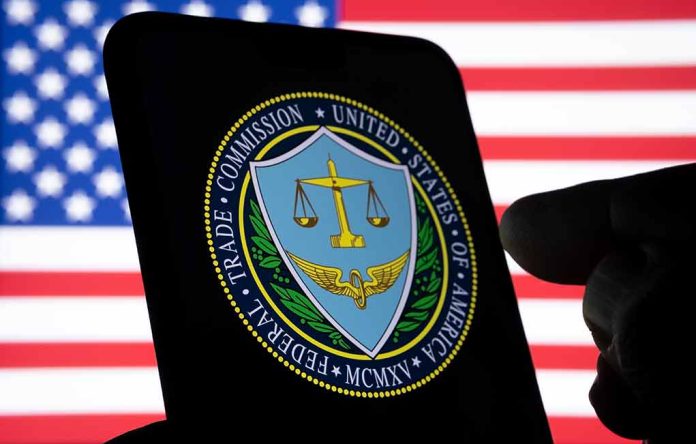
The Federal Trade Commission has introduced a significant measure to combat hidden junk fees charged by hotels, rental services, and ticket sellers, aiming to protect consumers from unexpected costs.
At a Glance
- The FTC’s Junk Fees Rule targets deceptive pricing in ticketing and short-term lodging.
- This rule demands the upfront disclosure of all fees, enhancing transaction transparency.
- It does not ban fees but mandates their clear presentation in total pricing.
- Businesses face potential civil penalties for non-compliance.
The Introduction of the Junk Fees Rule
The Federal Trade Commission (FTC) has announced a new rule requiring more transparency from companies in the live-event ticketing and lodging industries. This rule addresses hidden “junk fees” that often inflate the final cost at checkout for consumers. The FTC’s Junk Fees Rule mandates clear and upfront disclosure of all mandatory fees, aiming to eliminate the bait-and-switch pricing tactics that have historically misled and overcharged consumers.
The rule, supported by bipartisan approval, is designed to stop deceptive pricing practices that harm honest businesses. Clear price listings allow consumers to make informed decisions, minimizing unforeseen expenses after transactions have been finalized. The formal process began in 2022, with the FTC collecting over 72,000 public comments to help shape this final rule.
#FTC's New Rule Outlaws Hidden Fees in Hotel and Ticket Sales
The Federal Trade Commission has introduced a new rule that mandates transparency in pricing for hotels and live-event tickets. This rule, termed the #JunkFees Rule, prohibits the use of bait-and-switch tactics by… pic.twitter.com/cSzxdGFAQs
— Evan Kirstel #B2B #TechFluencer (@EvanKirstel) December 17, 2024
Compliance and Coverage
The Junk Fees Rule will be enforced 120 days after its publication in the Federal Register. While the rule mandates clear fee disclosures, it doesn’t prohibit specific fees altogether. Instead, it requires businesses to place total pricing, including all fees, more prominently than any other pricing details available. Violators face civil penalties up to $51,000 per day per violation, with cases potentially being referred to the Department of Justice for further enforcement.
“People deserve to know up-front what they’re being asked to pay—without worrying that they’ll later be saddled with mysterious fees that they haven’t budgeted for and can’t avoid,” said FTC Chair Lina M. Khan. “The FTC’s rule will put an end to junk fees around live event tickets, hotels, and vacation rentals, saving Americans billions of dollars and millions of hours in wasted time.”
Though comprehensive, this new regulation doesn’t cover all industries—rental cars, broadband internet, and movie tickets remain outside its scope. The airline industry’s fee transparency is subject to a separate rule from the Transportation Department, which is currently contested in court. California, where fee transparency is already mandated by state law, offers a model for national implementation.
Potential Impact
The FTC estimates this new rule will save consumers up to 53 million hours annually, translating into approximately $11 billion over a decade. It reflects a broader governmental move to protect consumers and enhance fair market practices. By addressing these junk fees, the FTC aims to foster wider consumer confidence in these markets.
While the rule has been met with some dissent within the FTC, with Commissioner Andrew Ferguson voting against its adoption due to timing concerns, the broader acceptance indicates a clear direction towards greater consumer rights protection. As this rule comes into effect, it underscores the ongoing commitment to tackle deceptive practices on behalf of the American people.









